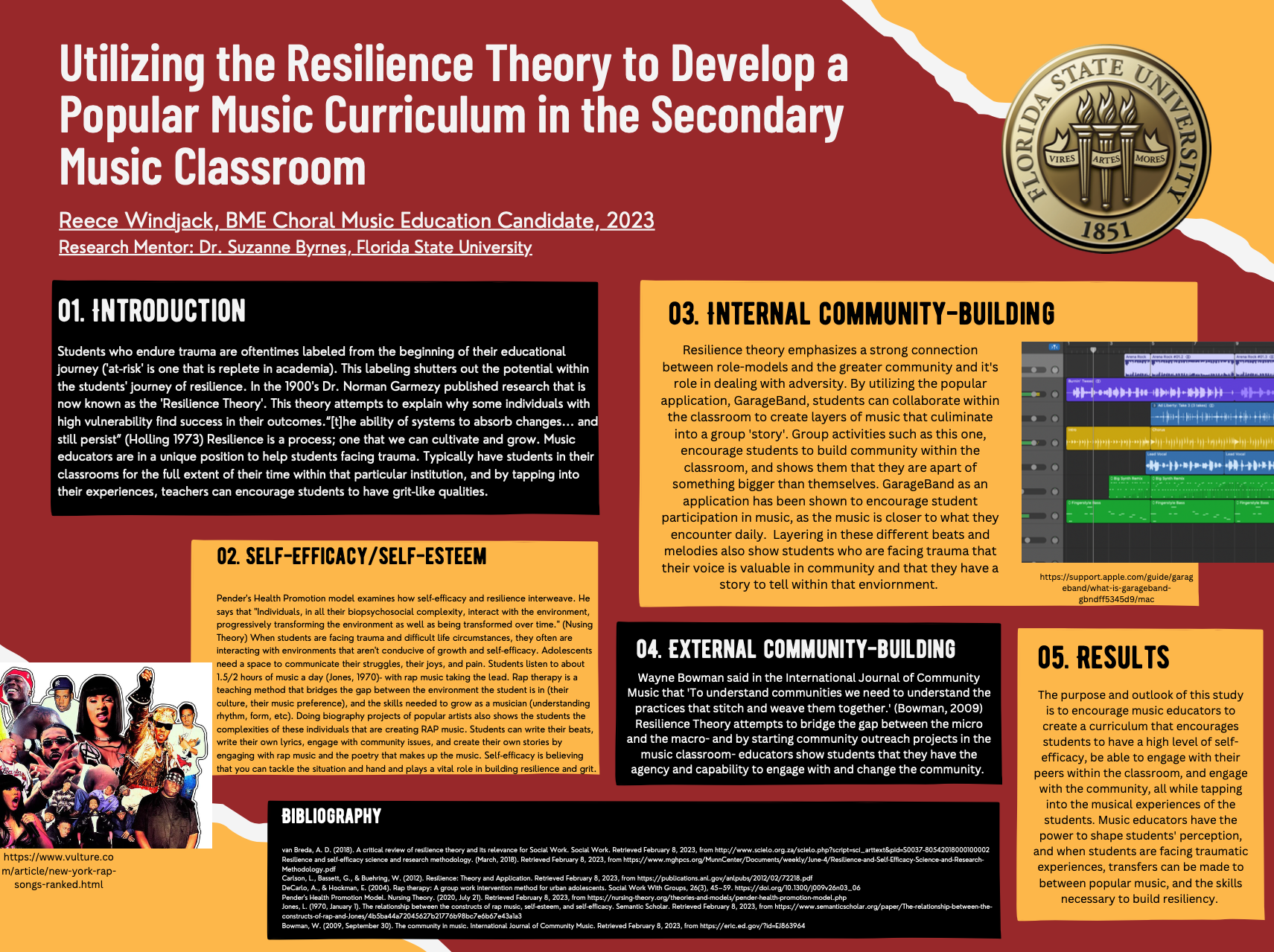Research Symposium
23rd annual Undergraduate Research Symposium, April 6, 2023
Reece Windjack Poster Session 4: 4:00 pm - 5:00 pm/ Poster #339

BIO
Reece Windjack is a dual degree Choral Music Education and Political Science student at Florida State University and is set to student teach in the Spring of 2024. He serves as the President of the Florida State University Singers, marches with the Florida State University Marching Chiefs, and is a member of the National Band Sorority, Tau Beta Sigma. His research interests have focused on DEI, Emergency Management/Homeland Security, and topics of import within educational equity. He's originally from rural Georgia and loves pecan pie!
Utilizing the Resilience Theory to Develop a Popular Music Curriculum in the Secondary Music Classroom
Authors: Reece Windjack, Dr. Suzanne ByrnesStudent Major: Choral Music Education and Political Science
Mentor: Dr. Suzanne Byrnes
Mentor's Department: Music Education Mentor's College: College of Music Co-Presenters:
Abstract
Students who are deemed ‘at-risk’ oftentimes face prejudice within curricula that might see them for this ‘risk’, or life challenges rather than their incredible potential. By developing a curriculum that includes popular music, music teachers can tap into this potential, helping assist students who are in difficult circumstances to develop community-building skills and build resiliency by employing the Resiliency Theory framework. In this work, we will examine different popular music education methodologies including poetry/rap therapy, community partnerships, biography projects, and Garage Band, and the various ways they can be applied to the 'thriving' qualities that students need to develop for survival in challenging life circumstances. Resilience Theory puts great emphasis on the learner being in control of their education, the role of the community in trauma response, and developing an understanding that situations can be improved and that the venture is worth the cost (Thriving). Students come into our classroom with a wealth of knowledge, previous experiences, and views on the world, while concurrently bringing in trauma, situational turmoil, and strain. One of the roles of a music educator is to offer them real-life tools to be able to successfully navigate these challenges.
Keywords: Music, Education, Resilience

